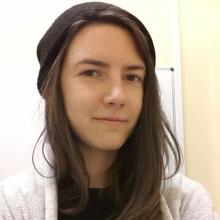
Francesca got her MS and PhD in Linguistics at the University of Padova, Italy. Her ultimate questions concern why natural languages are shaped the way they are. The issue of course could possibly never be completely understood, yet manifold levels of analysis admit some insight. For what concerns the phonological level, the set and the distribution of the possible vocal sounds present in natural languages depend largely on the shape and features of a physical entity, namely the articulatory system. Conversely, the limits and the variation of morphological systems do not have such a straightforward foundation. Yet, natural languages display evident cross-linguistic trends in what semantic features are grammatically encoded in morphology, and in how morphological systems are built. Francesca's research mostly concerns the morphological structure of words and of the morphological systems of natural languages, with the aim of better understanding the role of the cognitive processes that lead to the regularities observed across languages. In particular, she's been exploring the relation between core knowledge abilities and core grammar within the domain of noun morphology, particularly focusing on Number and Gender morphology. Other than typological comparison, the methods she's been using entail the experimental methods of cognitive psychology and psycholinguistics, as well as quantitative research on corpora.
In the lab, Francesca tries to understand the role of the statistical patterns in language use, as well as the role of core cognitive extra-linguistic factors in shaping morphological systems and in the processing of morphology.




